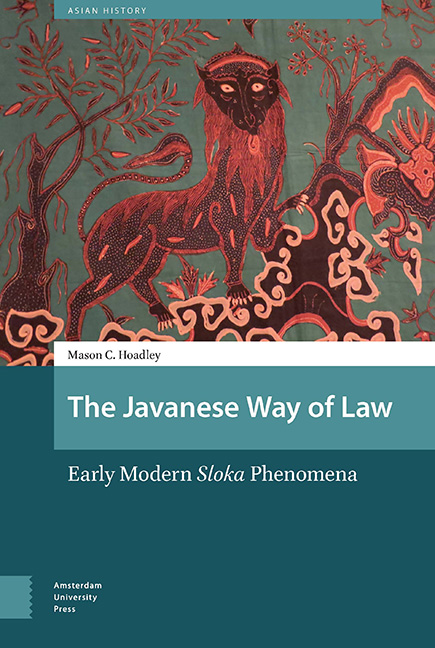Summary
At this point it seems prudent to remind ourselves that the sloka phenomena are instrumental. They constitute facets of law that both served the community and were created by it. With the knowledge gained of the sloka phenomena, discussion can turn to the broader significance of the law valid during the Independent Kingdoms era. A start can be made by emphasising its break from what we know of the law of Old Java.
Sloka phenomena as unique
Appreciation for the uniqueness of traditional Javanese law comes from comparison with what little is known of its predecessors. It has long been assumed that the law prevailing in the era of Old Java can be reconstructed from manuscripts copied, preserved, and edited by Balinese scribes. Much remains to be said on the issue. However, the present work is concerned with legal history only in so far as it touches on the sloka phenomena of the period under consideration. Nevertheless, any discussion of the subject must consider the accessible titles ascribed to Java and Bali as, for example, the Agama (of both Java and Bali), as well as the Balinese texts Adigama, Kutara Agama, and Purwa Agama. Even a summary reading of the contents of those titles reveals the lack of expressions identifiable as sloka phenomena. The hundreds of paragraphs comprising those texts yield only some three dozen expressions even vaguely resembling those of the Independent Kingdoms era. The only sloka reference discovered to date comes from the apparently Old Javanese Adigama in connection with false witness.
Because phrases resembling sloka of the Independent Kingdoms era are uncommon in titles of Java and Bali, a few examples can be given by way of illustrating their form and method of expression. Most of the three dozen terms repeated in several titles deal with wak parusa, literally ‘verbal violence’ illustrated by the Bali Agama § 295 and 297, as well as § 230-235. They concern scoffing and insults. Significantly, they are dependent on a strictly observed caste hierarchy, which does not seem to have characterised Old Java and certainly not that of the Independent Kingdoms era. That the parallel contents of the (Javanese) Agama are on a par is shown by the first of a dozen paragraphs on the issue.
- Type
- Chapter
- Information
- Javanese Way of LawEarly Modern Sloka Phenomena, pp. 169 - 180Publisher: Amsterdam University PressPrint publication year: 2019

